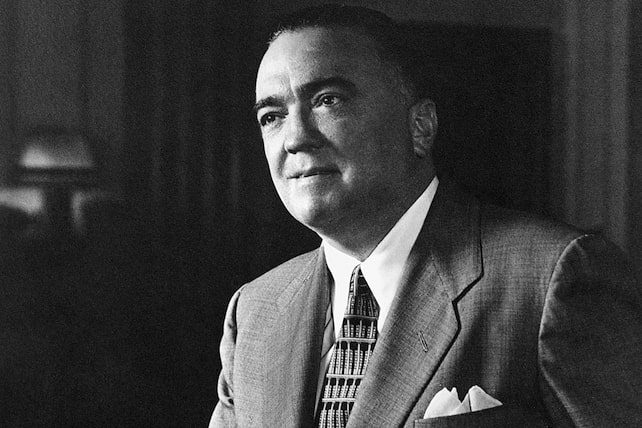In his book, Martin documents how Hoover saw anyone who upset the status quo and pushed for goals like “love, justice, and the brotherhood of man” or “personal freedom” as part of an atheistic communist plot. He used the power of his office to investigate those who opposed him, including religious leaders like the National Council of Churches and the Rev. Martin Luther King Jr.
He turned his office into a bully pulpit, writing essays for major Christian publications, saying that all the nation’s problems — including issues of race — could be solved if only everyone gave their hearts to Jesus. The FBI then reprinted those essays, adding an FBI seal as if they reflected official government policies, and shared them with churches, Sunday schools and almost anyone who wanted them.
Some preachers even preached them word for word on Sundays, Martin recounts, complete with Hoover’s warnings of disaster if America strayed from its spiritual roots and the Marxists took over.
“We are today threatened by twin menaces,” he wrote in a 1961 essay for Christianity Today. “Materialism has fathered both crime and communism. The criminal statistics for the year just past attest to the steady growth of the one evil. The progress of the other — and the intensity of the struggle in which we are engaged with it — does not yield to such forthright measure.”
Many evangelical leaders were eager to join Hoover’s crusade against communism and liberals. They also saw the advantages of having Hoover as an ally, said Martin in an interview.
“What better way in the midst of a cold war to authenticate your organization than to have the approval of the FBI — the organization that knows all and sees all?” said Martin.
Evangelicals embraced Hoover even though he shared few of their theological convictions. He did not believe in being “born again,” said Martin, and never had the kind of conversion experience that is so essential to evangelical life. He also did not share evangelical prejudice against Catholics, which was common in the middle of the 20th century. Instead, Martin writes, he saw Catholics as essential partners.
“I am a Protestant,” he said in a 1939 address to a Catholic gathering in Washington, D.C., that is recounted in Martin’s book. “And as a Protestant, I say sincerely and from experience, that the Catholic Church is the greatest protective influence in our nation today.”
Martin writes that Hoover was a particular admirer of the Society of Jesuits and recruited Jesuit priests to train FBI agents to be spiritual warriors. The FBI held yearly retreats for agents at a Jesuit retreat house in Annapolis led by his friend, the Rev. Robert S. Lloyd, and donated a chalice engraved with “FBI” to Lloyd for use during Mass.
The agency also held an annual Mass and Communion breakfast for Catholic agents and an interdenominational vespers service for Protestant agents to counter rumors the FBI had been taken over by Catholics. At both, only White Christian agents were welcomed, Martin writes. Agents of color never received invitations.

In an interview, Martin said Hoover was a true Christian nationalist, who believed he was working for God — not the Constitution or the American people. He saw enforcing the law as a spiritual battleground, said Martin, a view he developed as a teenage Sunday school teacher.


